
Wilda: The Heartbeat of Poznan
Wilda, a vibrant and historic neighbourhood in Poznan, Poland, offers a unique blend of old-world charm and modern flair. This area, nestled just south of the city centre, is renowned for its rich history, diverse architecture, and dynamic cultural scene. Wander through its streets and you'll find a tapestry of colourful buildings, each telling a story from different eras of Polish history. The neighbourhood is dotted with charming cafes, eclectic boutiques, and bustling markets, making it a delightful place to explore on foot. One of Wilda's standout features is its stunning Art Nouveau architecture. Look up and admire the intricate facades of the townhouses, each a testament to the craftsmanship of a bygone era. The streets are lined with trees, offering a pleasant canopy of shade during the warmer months, making it an ideal spot for a leisurely stroll. Don't miss the iconic Wilda Market Hall, a vibrant hub where locals shop for fresh produce, meats, and artisanal goods. This market provides a real taste of local life and flavours, making it a must-visit for food enthusiasts. Beyond its architectural beauty and market culture, Wilda is also home to several green spaces, perfect for relaxation and recreation. The nearby Warta River offers scenic walking and cycling paths, providing a peaceful escape from the urban hustle. Throughout the year, Wilda hosts various cultural events, from street festivals to outdoor concerts, ensuring there's always something exciting happening. With its unique blend of history, culture, and community spirit, Wilda stands out as a must-visit destination in Poznan.
Local tips in Wilda
- Visit the Wilda Market Hall early in the morning to experience the local culture at its liveliest and to get the freshest produce.
- Take a leisurely walk along the Warta River for scenic views and a peaceful atmosphere.
- Explore the neighbourhood on foot to fully appreciate the intricate details of the Art Nouveau architecture.
- Check local listings for cultural events and festivals happening in Wilda during your visit.
- Don't forget to stop by one of the local cafes for a taste of traditional Polish pastries and coffee.
Wilda: The Heartbeat of Poznan
Wilda, a vibrant and historic neighbourhood in Poznan, Poland, offers a unique blend of old-world charm and modern flair. This area, nestled just south of the city centre, is renowned for its rich history, diverse architecture, and dynamic cultural scene. Wander through its streets and you'll find a tapestry of colourful buildings, each telling a story from different eras of Polish history. The neighbourhood is dotted with charming cafes, eclectic boutiques, and bustling markets, making it a delightful place to explore on foot. One of Wilda's standout features is its stunning Art Nouveau architecture. Look up and admire the intricate facades of the townhouses, each a testament to the craftsmanship of a bygone era. The streets are lined with trees, offering a pleasant canopy of shade during the warmer months, making it an ideal spot for a leisurely stroll. Don't miss the iconic Wilda Market Hall, a vibrant hub where locals shop for fresh produce, meats, and artisanal goods. This market provides a real taste of local life and flavours, making it a must-visit for food enthusiasts. Beyond its architectural beauty and market culture, Wilda is also home to several green spaces, perfect for relaxation and recreation. The nearby Warta River offers scenic walking and cycling paths, providing a peaceful escape from the urban hustle. Throughout the year, Wilda hosts various cultural events, from street festivals to outdoor concerts, ensuring there's always something exciting happening. With its unique blend of history, culture, and community spirit, Wilda stands out as a must-visit destination in Poznan.
Iconic landmarks you can’t miss
Park Cytadela
Experience the charm of Park Cytadela, Poznań's largest urban park, where history meets nature amidst beautiful landscapes and cultural treasures.
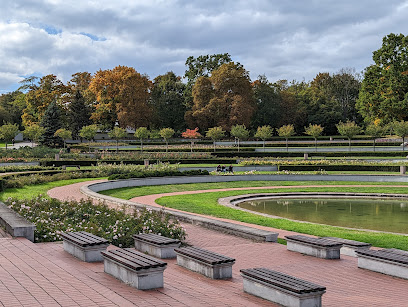
Brama Poznania
Discover Poznań's vibrant history at Brama Poznania, a cultural center that offers interactive exhibits and stunning river views.
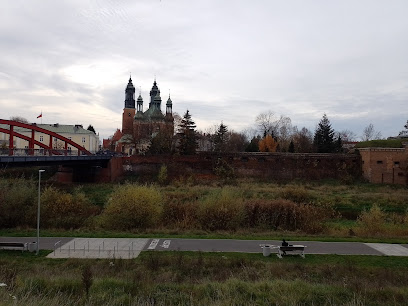
John Paul II Park
Discover the natural beauty and tranquility of John Paul II Park in Poznań, a perfect escape for nature lovers and families.
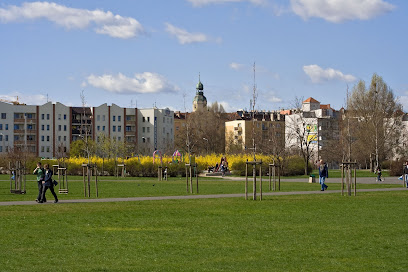
Adam Mickiewicz Square
Explore Adam Mickiewicz Square in Poznań - a historical landmark surrounded by vibrant culture, stunning architecture, and delicious local cuisine.
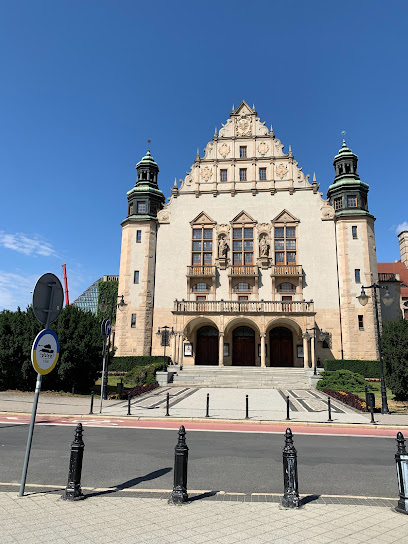
Stary Marych Monument
Discover the enchanting Stary Marych Monument in Poznań, a captivating blend of art and local folklore that celebrates the city's rich cultural heritage.
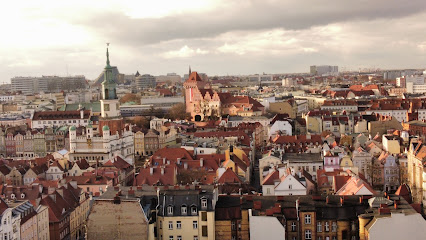
Isabella and Jarogniew Drwęski Park
Discover the serene beauty of Isabella and Jarogniew Drwęski Park, a lush urban oasis in Poznań perfect for relaxation, family fun, and nature exploration.
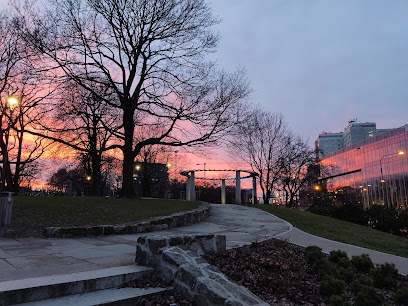
Wystawa Pająków Poznań
Explore the enchanting world of spiders at Wystawa Pająków Poznań, where education meets curiosity in a captivating exhibition.
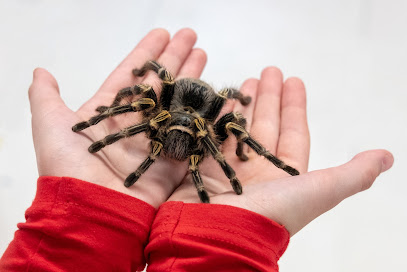
Monument to the Victims of June 1956
Discover the Monument to the Victims of June 1956 in Poznań, a powerful tribute reflecting Poland's struggle for freedom and resilience.
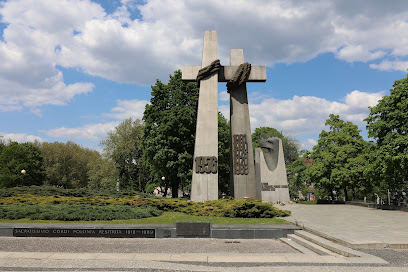
Monument to Hipolit Cegielski in Poznań
Explore the historic Monument to Hipolit Cegielski in Poznań, a tribute to innovation and industrial legacy in Poland.
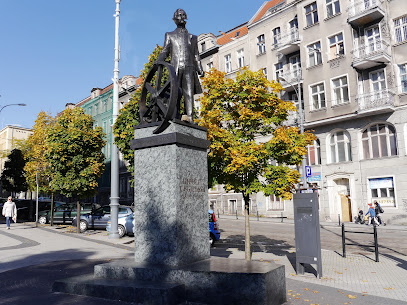
Historic Alpinarium
Discover the beauty of alpine flora at the Historic Alpinarium in Poznań, a serene escape into nature amidst the city's vibrant culture.
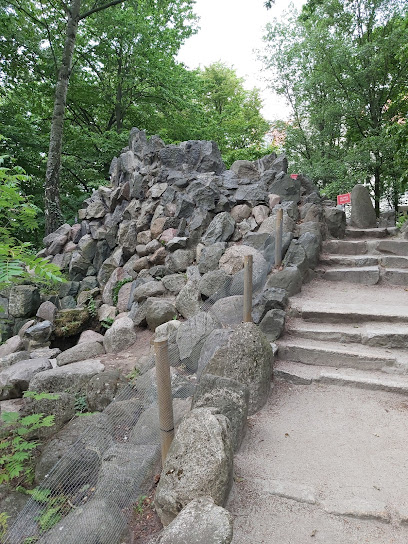
Unmissable attractions to see
Old Market Square
Experience the historical allure of Old Market Square in Poznań, a vibrant hub of culture, architecture, and culinary delights.
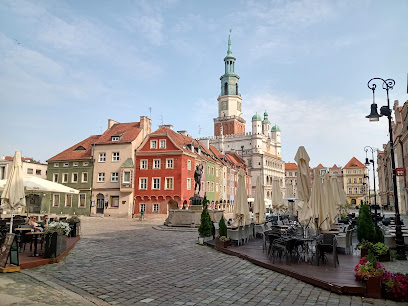
Poznań Palm House
Explore the lush paradise of Poznań Palm House, a unique botanical garden featuring exotic plants and tranquil water features in the heart of Poland.
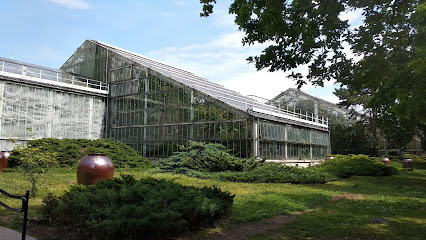
Woodrow Wilson Park
Explore the beauty of Woodrow Wilson Park in Poznań, a peaceful haven with lush landscapes, exotic plants, and scenic pathways for relaxation and recreation.
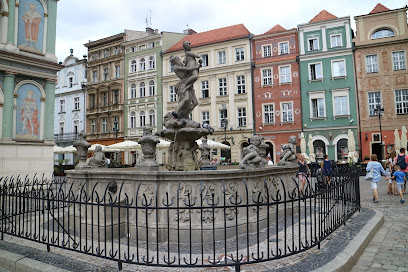
Brama Poznania
Explore the rich history of Poznań at Brama Poznania, a cultural center that combines modern technology with traditional storytelling.
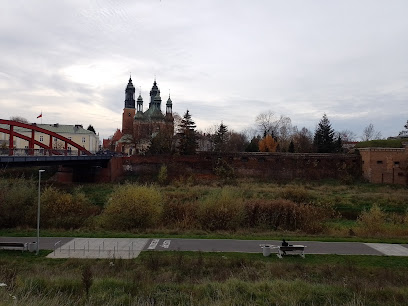
Poznań Cathedral
Discover the architectural beauty and historical significance of Poznań Cathedral, a must-visit landmark on Ostrów Tumski Island for every traveler.
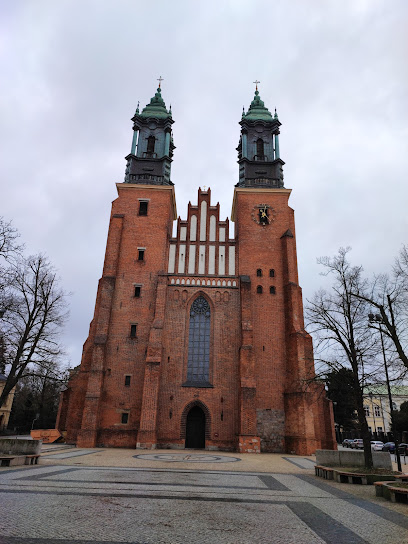
John Paul II Park
Experience the serene beauty of John Paul II Park in Poznań, a tranquil escape with lush greenery and recreational spaces for all.
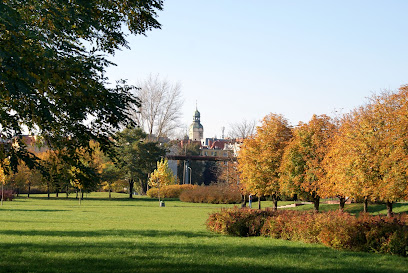
Adam Mickiewicz Park
Explore the lush landscapes, rich history, and vibrant culture of Adam Mickiewicz Park in Poznań, a perfect escape for tourists seeking tranquility.
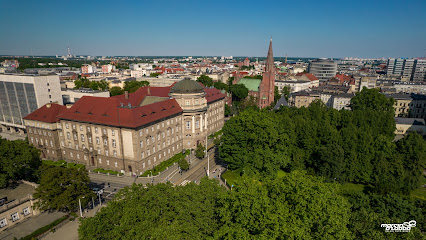
Poznań Goats
Experience the whimsical charm of the Poznań Goats, a beloved cultural highlight that brings joy and tradition to the heart of Poznań.
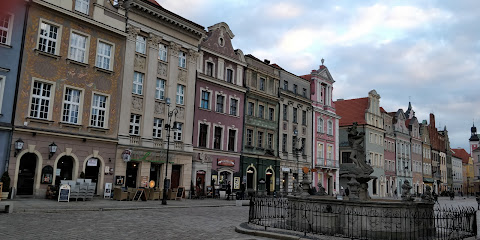
Wystawa Pająków Poznań
Discover the incredible diversity of spiders at Wystawa Pająków Poznań, a unique attraction perfect for families and nature lovers alike.
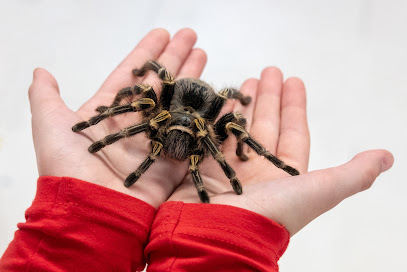
Chłopiec pod wierzbą
Discover the charm of Chłopiec pod wierzbą, a picturesque fountain in Poznań that embodies the city's cultural heritage and serene ambiance.
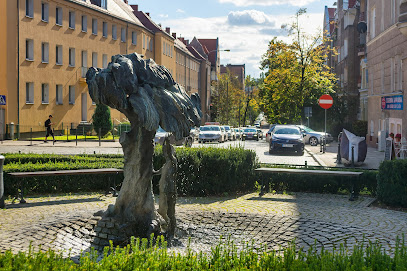
Fontanna
Discover the captivating beauty of Fontanna in Poznań, a serene fountain that reflects the city's rich history and artistic charm.
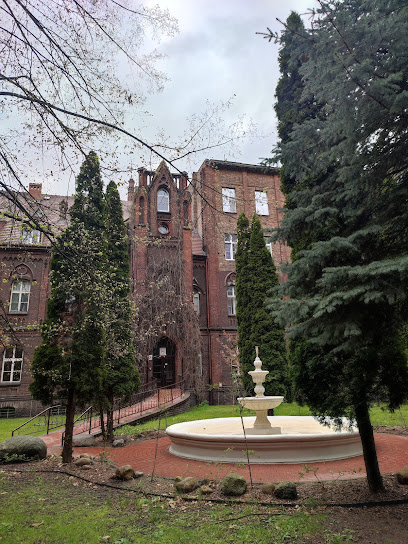
Essential places to dine
Suszone Pomidory
Experience authentic Southern Italian cuisine at Suszone Pomidory in Poznań – where every dish tells a delicious story.
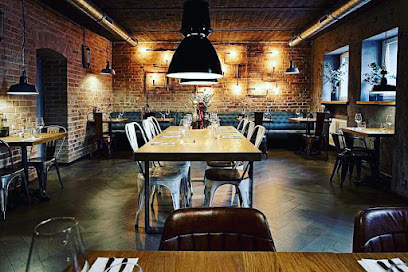
przyjemność
Experience authentic Italian pizza at Przyjemność in Poznań - where every bite brings joy and flavor together.
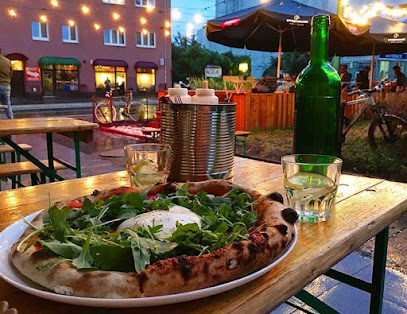
Mamma Wilda
Experience authentic Italian cuisine at Mamma Wilda in Poznań—where every dish is crafted with passion and tradition.
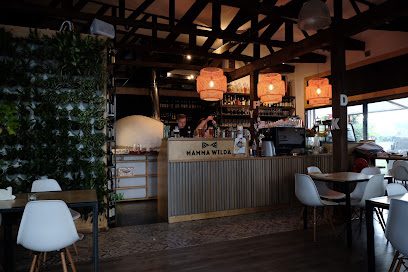
A nóż widelec
Experience the finest Polish cuisine at A nóż widelec in Poznań - where every meal is a celebration of flavor and tradition.
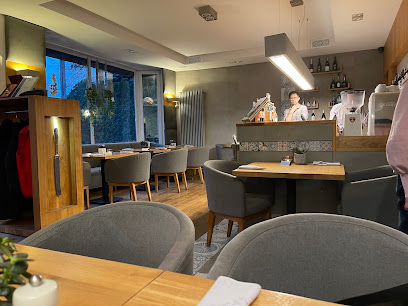
NOOKS
Discover exquisite seafood dining at NOOKS in Poznań - where fresh flavors meet elegant ambiance.
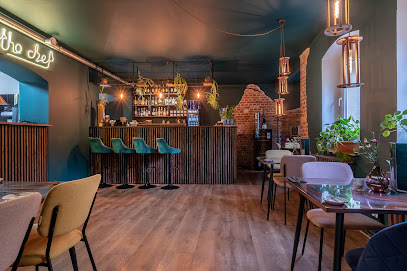
START Restauracja
Discover authentic Polish flavors at START Restauracja in Poznań—an exquisite tapas restaurant offering a unique dining experience.
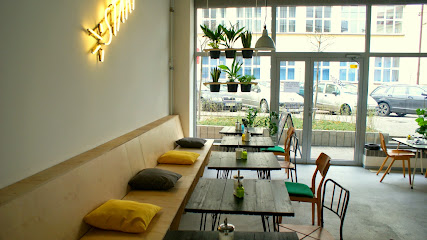
Bratanki Bistro & Bar
Experience the best of European and Hungarian cuisine at Bratanki Bistro & Bar in Poznań - where every meal is a celebration.
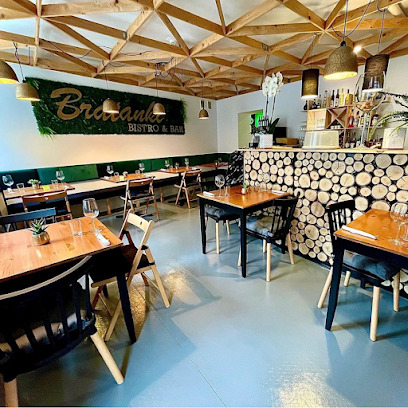
Bezstresowa
Discover the charm of Bezstresowa, Poznań's cozy wine bar offering exquisite wines, refreshing beers, and delicious tapas in a welcoming atmosphere.
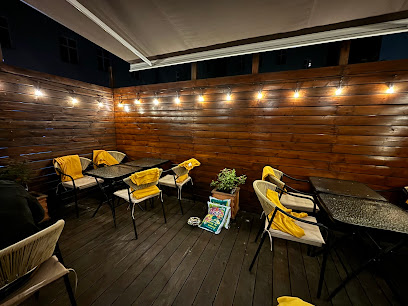
Restauracja Italia
Savor the flavors of Northern Italy at Restauracja Italia in Poznań - a culinary delight awaits every visitor.
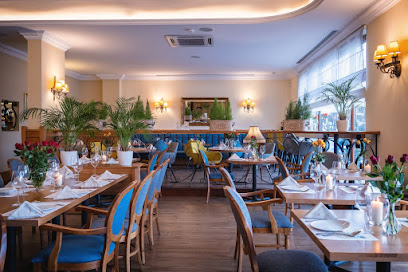
4 Seasons Restaurant
Discover seasonal flavors at 4 Seasons Restaurant in Poznań - where culinary creativity meets local tradition.
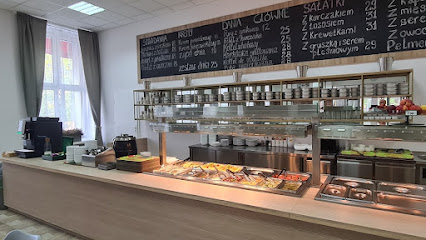
Markets, malls and hidden boutiques
Avenida Poznań
Discover Avenida Poznań, a shopping mall in Poznań that combines retail therapy, dining delights, and family fun all under one roof.
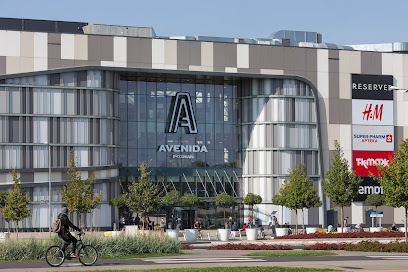
Green Point
Explore the vibrant shopping and dining scene at Green Point, Poznań's premier retail destination for a unique local experience.
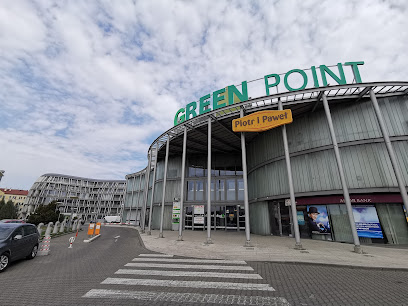
Dealz
Explore Dealz in Poznań for unbeatable discounts on a wide range of products, from household essentials to trendy fashion items.
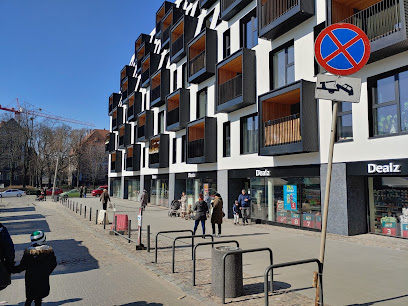
Avanti
Discover vintage fashion and unique clothing treasures at Avanti, a gem in Poznań's Wilda district, perfect for eco-conscious shoppers.
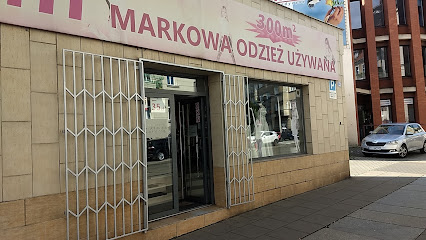
Action Poznań
Explore the vibrant world of Action Poznań, your go-to gift shop for unique finds and DIY treasures in the heart of Poznań.
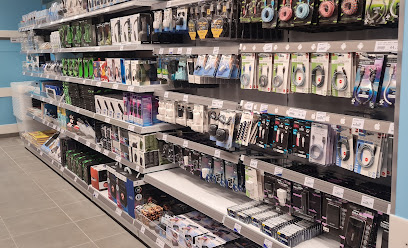
Dekoracje - Balony z helem - kartki okolicznościowe - POZNAŃ WILDA
Explore Poznań Wilda's unique gift shop for balloons, cards, and souvenirs, perfect for celebrating life's special moments.
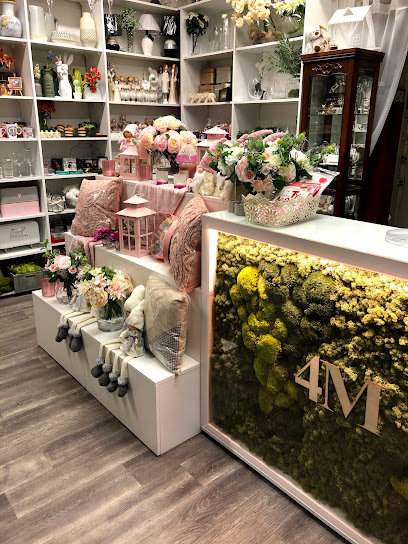
Kiosk
Discover local culture and convenience at Kiosk, Poznań's delightful newsstand offering a range of snacks, drinks, and reading material.
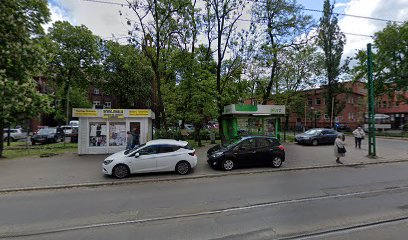
Nowa Kolekcja
Explore Nowa Kolekcja in Poznań for a unique shopping experience filled with contemporary Polish fashion and stylish apparel.
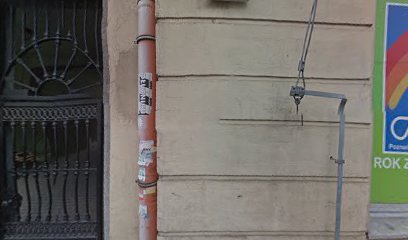
WILDA.ECO Sustainable Fashion
Discover WILDA.ECO, Poznań's premier destination for sustainable fashion, blending style with environmental responsibility in every piece.
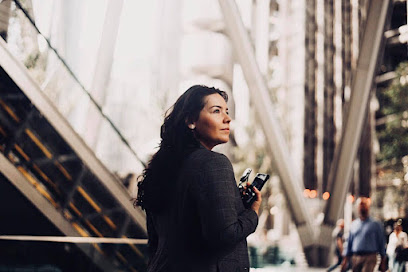
Misswish
Explore Misswish in Poznań, where unique gifts and stylish clothing come together in a delightful shopping experience.
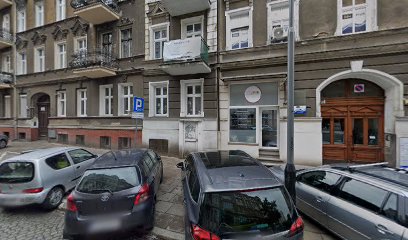
Essential bars & hidden hideouts
Bratanki Bistro & Bar
Discover the flavors of Europe and Hungary at Bratanki Bistro & Bar, a cozy culinary haven in Poznań, perfect for any dining occasion.
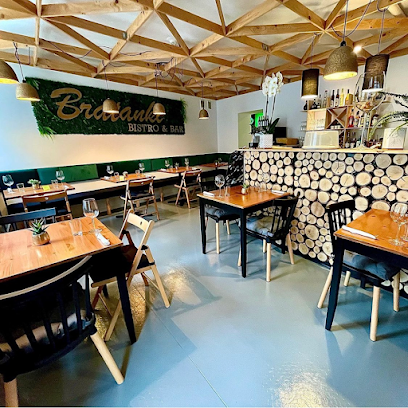
Bezstresowa
Discover Bezstresowa, a cozy wine bar in Poznań, perfect for enjoying wines, beers, and tapas in a friendly atmosphere.
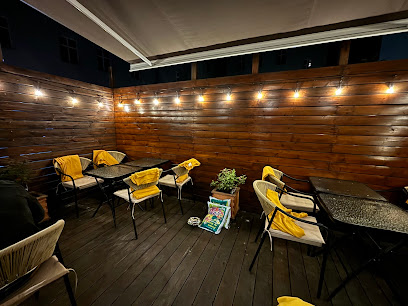
Q HAH Cocktail Bar
Experience the vibrant nightlife at Q HAH Cocktail Bar in Poznań, featuring creative cocktails, a welcoming atmosphere, and unforgettable events.
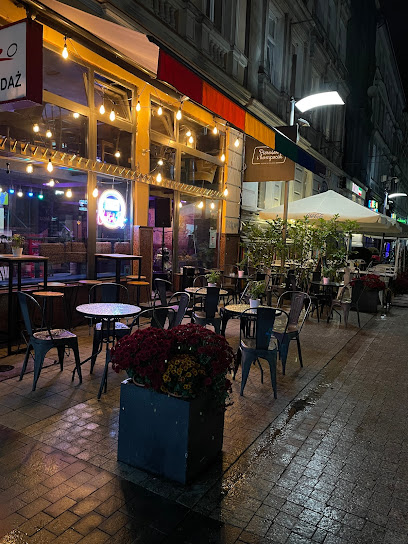
FARBY
Discover FARBY, a vibrant bar in Poznań offering creative cocktails and a cozy atmosphere infused with local art and culture.
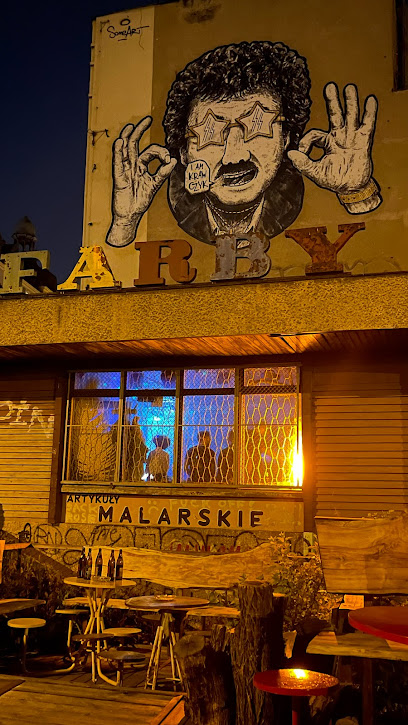
Kejter koktajl bar
Explore the vibrant atmosphere of Kejter Cocktail Bar in Poznań, where exceptional cocktails meet live music and friendly competition.
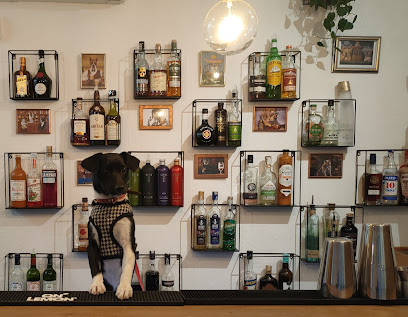
Klubokawiarnia Radiowęzeł
Discover the lively ambiance of Klubokawiarnia Radiowęzeł, a local pub in Poznań's Wilda district, perfect for drinks and socializing.
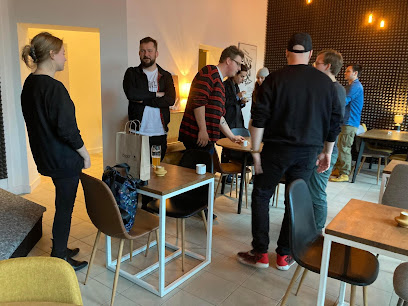
Pub Wiśnia
Discover the heart of Poznań's pub culture at Pub Wiśnia, where great drinks and local flavors come together in a cozy atmosphere.
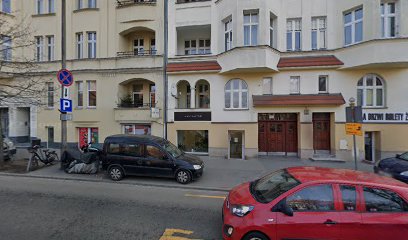
Bar Sweet lunch
Discover the charm of Bar Sweet Lunch in Poznań, where delightful flavors meet a cozy atmosphere for an unforgettable experience.
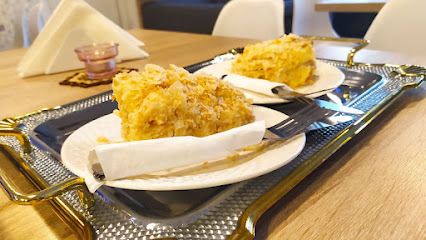
Bar na pływalni
Experience the vibrant atmosphere of Bar na pływalni in Poznań, where local culture meets refreshing drinks in a cozy setting.
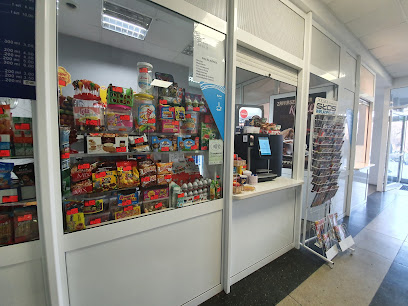
Księgarnia
Experience the authentic taste of Poznań at Księgarnia, the city's premier cider bar offering a delightful selection in a cozy atmosphere.
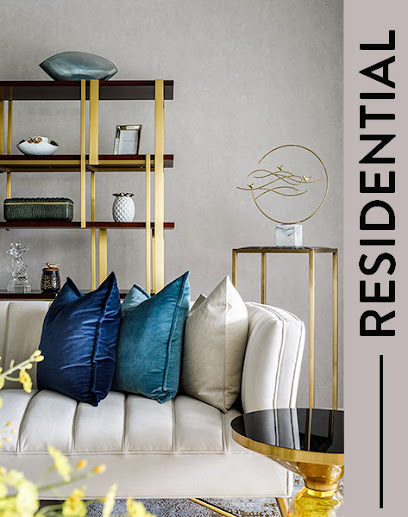
Local Phrases
-
- HelloCześć
[cheshch] - GoodbyeDo widzenia
[do veedzenya] - YesTak
[tak] - NoNie
[nye] - Please/You're welcomeProszę
[prosheh] - Thank youDziękuję
[jen-koo-yeh] - Excuse me/SorryPrzepraszam
[pshay-prah-sham] - How are you?Jak się masz?
[yak sheh mash] - Fine. And you?Dobrze. A ty?
[dob-zheh. ah tee] - Do you speak English?Czy mówisz po angielsku?
[chi moo-vish poh an-gyell-skoo] - I don't understandNie rozumiem
[nye roh-zoo-myem]
- HelloCześć
-
- I'd like to see the menu, pleaseChciałbym zobaczyć menu, proszę
[h-chyah-wim zoh-bah-chich meh-noo, proh-sheh] - I don't eat meatNie jem mięsa
[nye yem myen-sah] - Cheers!Na zdrowie!
[nah zdrov-yeh] - I would like to pay, pleaseChciałbym zapłacić, proszę
[h-chyah-wim zah-plah-cheech, proh-sheh]
- I'd like to see the menu, pleaseChciałbym zobaczyć menu, proszę
-
- Help!Pomocy!
[poh-moh-tsi] - Go away!Idź sobie!
[eej soh-byeh] - Call the Police!Zadzwoń po policję!
[zahd-voon poh poh-leet-syeh] - Call a doctor!Zadzwoń po lekarza!
[zahd-voon poh leh-kah-zah] - I'm lostZgubiłem się
[zgoo-bi-wehm sheh] - I'm illJestem chory
[yeh-stem hoh-rih]
- Help!Pomocy!
-
- I'd like to buy...Chciałbym kupić...
[h-chyah-wim koo-peech] - I'm just lookingTylko się rozglądam
[tih-koh sheh rohz-gwah-dahm] - How much is it?Ile to kosztuje?
[ee-leh toh kohs-too-yeh] - That's too expensiveTo jest za drogie
[toh yest zah droh-gyeh] - Can you lower the price?Czy można obniżyć cenę?
[chi moo-na ohb-nee-zhich cheh-neh]
- I'd like to buy...Chciałbym kupić...
-
- What time is it?Która jest godzina?
[ktoo-rah yest goh-dzih-nah] - It's one o'clockJest pierwsza
[yest pyerv-shah] - Half past (10)Pół godziny po dziesiątej
[poo woh-dzih-ny poh dzyeh-shyohn-teh] - MorningRano
[rah-noh] - AfternoonPopołudnie
[poh-poo-wood-nyeh] - EveningWieczór
[vyeh-choor] - YesterdayWczoraj
[v-choh-rye] - TodayDzisiaj
[jee-shy-ay] - TomorrowJutro
[yoo-troh] - 1Jeden
[yeh-den] - 2Dwa
[dvah] - 3Trzy
[tshih] - 4Cztery
[ch-teh-rih] - 5Pięć
[pyehnch] - 6Sześć
[sheshch] - 7Siedem
[syeh-dem] - 8Osiem
[oh-shyem] - 9Dziewięć
[jeh-vyehnch] - 10Dziesięć
[dzyeh-shyohnch]
- What time is it?Która jest godzina?
-
- Where's a/the...?Gdzie jest...
[g-jeh yest] - What's the address?Jaki jest adres?
[yah-ki yest ah-drehss] - Can you show me (on the map)?Czy możesz mi pokazać (na mapie)?
[chi moh-zhesh mee poh-kah-zahch (nah mah-pee-yeh)] - When's the next (bus)?Kiedy jest następny (autobus)?
[kyeh-dih yest nah-stehp-nih (ow-toh-boos)] - A ticket (to ....)Bilet (do ....)
[bee-let (doh)]
- Where's a/the...?Gdzie jest...
History of Wilda
-
Wilda's history can be traced back to the 13th century when it was a village located outside the city walls of Poznan. It developed along the route leading to the nearby village of Morasko, serving as a vital connection for trade and communication. The area was initially agricultural, characterized by fields and small farms that supported the growing population of Poznan.
-
The 19th century marked a significant transformation for Wilda, coinciding with the broader industrialization of Poznan. The construction of railways and factories attracted a wave of workers, leading to rapid urbanization. Notable industries included textile and brewing, which became pivotal to the local economy, fostering the growth of residential areas and changing the demographic landscape.
-
Wilda became a cultural melting pot in the late 19th and early 20th centuries, with a diverse population that included Poles, Germans, and Jews. This cultural diversity was reflected in the architecture, local customs, and various community events. The neighborhood was home to several places of worship, including churches and synagogues, symbolizing the rich tapestry of cultural influences.
-
During World War II, Wilda experienced significant upheaval. The German occupation led to the suppression of Polish culture and the persecution of the Jewish community. Many residents were displaced or forced into labor camps. The war left lasting scars on the neighborhood, with several historical buildings damaged or destroyed, altering the urban landscape.
-
After the war, Wilda underwent reconstruction as part of Poland's broader rebuilding efforts. New residential blocks were erected to accommodate a growing population. The neighborhood evolved, integrating modern amenities while retaining elements of its historical charm. In recent years, there has been a resurgence of interest in Wilda's history, with preservation efforts aimed at restoring its cultural heritage.
Wilda Essentials
-
Wilda is conveniently located in Poznan and can be easily accessed from various neighborhoods. From the city center, take tram line 1 or 2 towards the Wilda district. Alternatively, buses such as lines 46 and 51 also serve the area. Poznan’s main train station, Poznań Główny, is close by, making it easy for travelers arriving from other cities.
-
Wilda is well-connected by public transport. Trams and buses provide efficient means for navigating the area and accessing nearby neighborhoods. The local tram network has multiple stops in Wilda, while buses can take you further afield. For a more leisurely experience, consider renting a bicycle, as many bike paths are available throughout the area.
-
Wilda is generally safe for tourists, but standard precautions should be taken. Petty crimes like pickpocketing can occur in crowded areas. It is advisable to avoid poorly lit streets at night, particularly around the outskirts. Areas near the train station can be less secure after dark, so exercise caution in those zones.
-
In case of emergencies, dial 112 for police, fire, or medical assistance. For non-life-threatening issues, you can visit local hospitals or clinics. It's also wise to have travel insurance that covers medical emergencies. Pharmacies are available throughout Wilda for minor health concerns.
-
Fashion: Do dress comfortably but modestly, especially in religious sites. Don't wear overly casual or revealing clothing. Religion: Do respect local customs, and if visiting churches, make sure to dress appropriately. Public Transport: Do give up your seat for the elderly or disabled. Don't eat or drink on public transportation. Greetings: Do greet with a friendly smile and a handshake; a nod is also appreciated. Eating & Drinking: Do try local cuisines and accept invitations; don't waste food or refuse hospitality as it may be seen as rude.
-
To experience Wilda like a local, explore the small cafes and bakeries that offer traditional Polish pastries, such as 'pączki'. Visit the local markets for fresh produce and handmade goods. Engage with locals, who are generally warm and welcoming. For a unique experience, check out local events or festivals that may be happening, as they often showcase the rich culture and community spirit of Wilda.
Nearby Cities to Wilda
-
Things To Do in Bydgoszcz
-
Things To Do in Torun
-
Things To Do in Wroclaw
-
Things To Do in Lodz
-
Things To Do in Szczecin
-
Things To Do in Opole
-
Things To Do in Czestochowa
-
Things To Do in Berlin
-
Things To Do in Gdansk
-
Things To Do in Sopot
-
Things To Do in Hradec Králové
-
Things To Do in Elblag
-
Things To Do in Potsdam
-
Things To Do in Gliwice
-
Things To Do in Dresden






